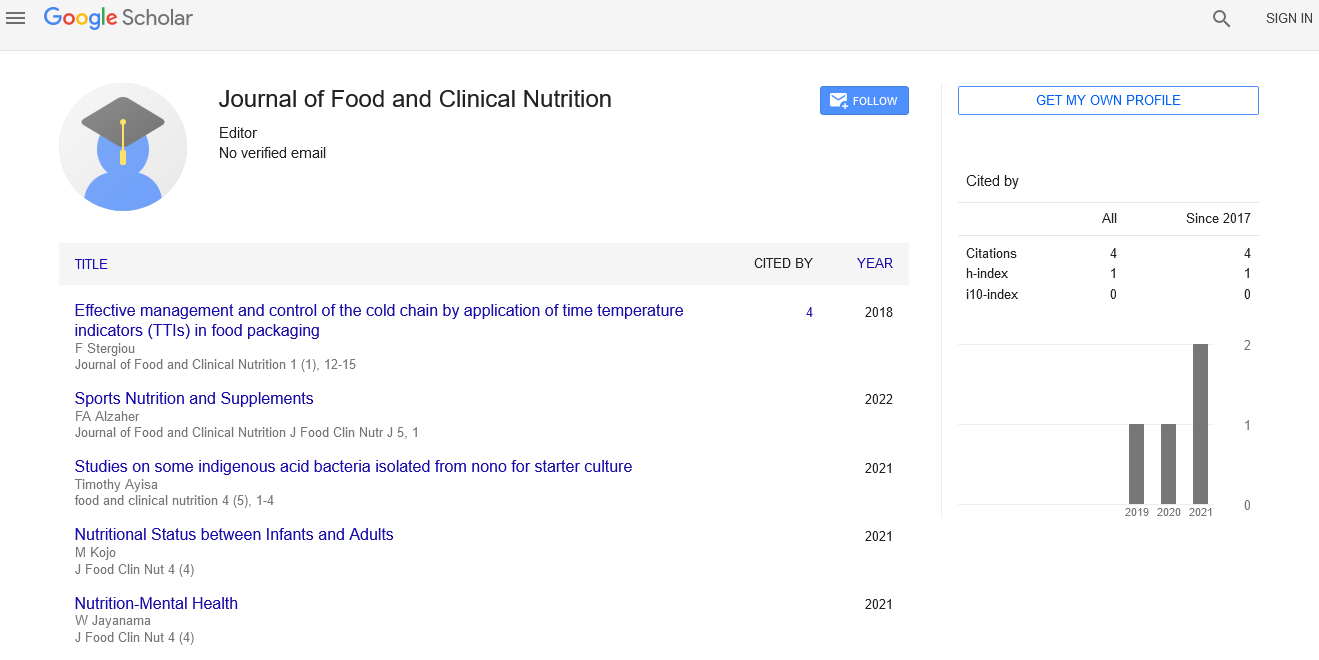
Sign up for email alert when new content gets added: Sign up
Assessment of safety performance in banana alcoholic beverage processing factories in Rwanda
3rd Annual Congress on Food Science Nutrition & Women's Health
December 06, 2022 | Webinar
Grace Irakiza, Viateur Ugirinshuti, Olivier Kamana, Martin Patrick Ongol
NIRDA, Rwanda UNCST, Uganda
Posters & Accepted Abstracts: J Food Clin Nut
Abstract :
Statement of the problem: Traditional banana alcoholic beverages produced in Rwanda are still contaminated by microorganisms such as E. coli, Staphylococcus aureus and total coliforms and Bacillus cereus. The overall mean scores of food safety performance indicators of all surveyed factories microbial contamination may lead to unsafe products, illness, mortality and limit the products on markets, lower market value and reduced employment and livelihood. This study aimed to apply customized diagnostic tool to gain an insight into the performance of food safety in traditional banana alcoholic beverage factories as evidence based to support the selection of suitable interventions for improvement to assure sustainability and meet growing market of traditional banana beverages. Methodology: Literature search was used to identify context factors, quality assurance and control activities that influence safety of banana alcoholic beverages and validated by stakeholders through interview and observation. Data were collected in eleven factories in Kigali city and four provinces of Rwanda using questionnaire/checklist. Data analysis was performed using Microsoft Office Excel. Findings: All factories have shown to operate in relatively high-risk context (score2- 3), most of control activities were at basic level (score1) whereas assurance activities were at relatively average level (score1-2) which resulted into poor food safety performance (score1). Key factors contributing to poor performance were traditional processing methods, inadequate technical staff, lack of capital resources, people behavior toward food safety, inadequate supporting document system, inadequate sanitation program, poor hygienic design of equipment and building. Conclusion: Modern food safety practices can’t be applied in traditional food processing factories due to traditional methods and equipment, low level of science-based knowledge related to processing technology, food safety and hygiene. Therefore, there is a need to design modern equipment that are easy to clean and disinfect to replace traditional ones, to train technical staff on processing technology, safety and hygiene and to change behaviors towards making decisions based on scientific knowledge.




